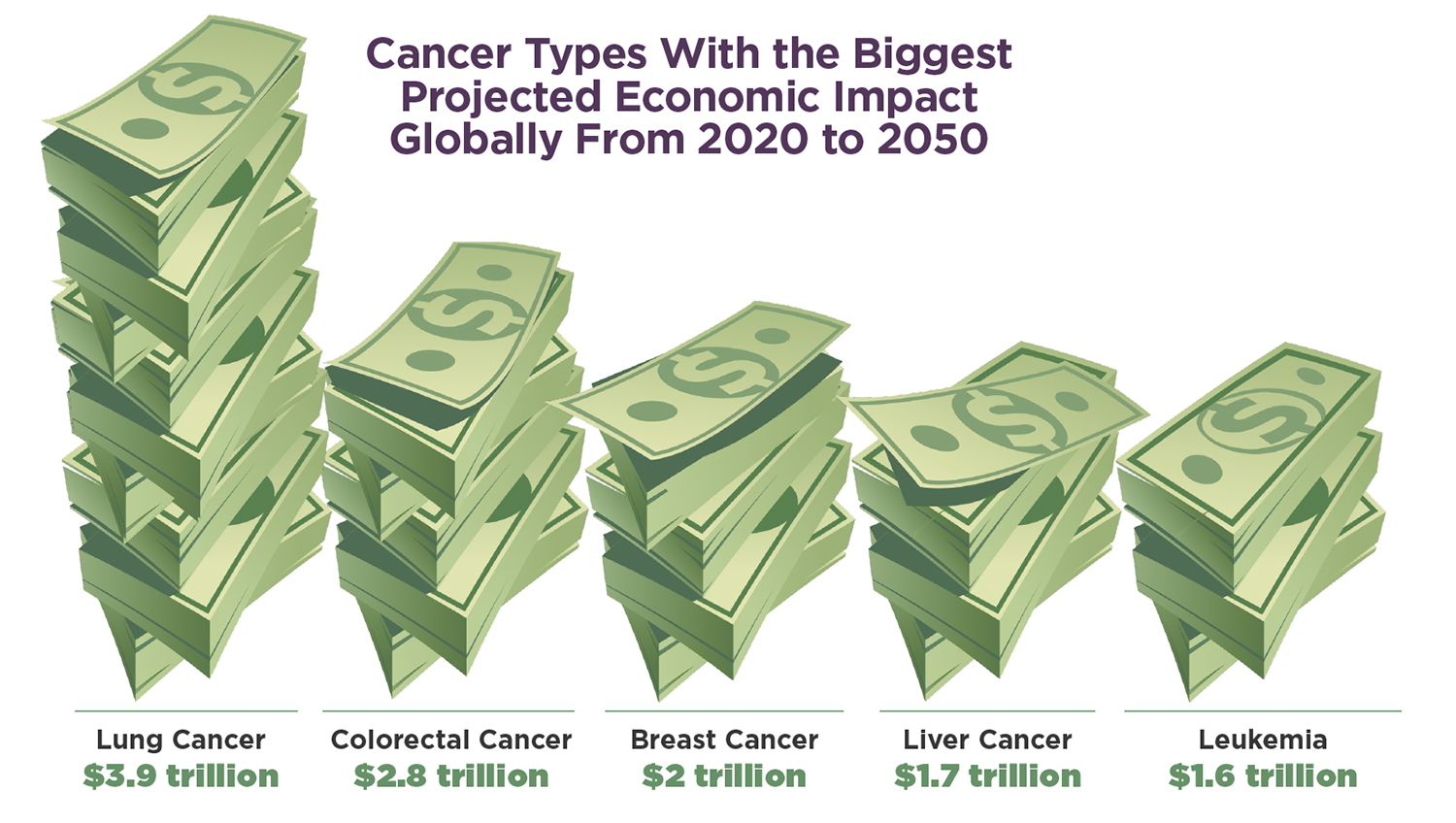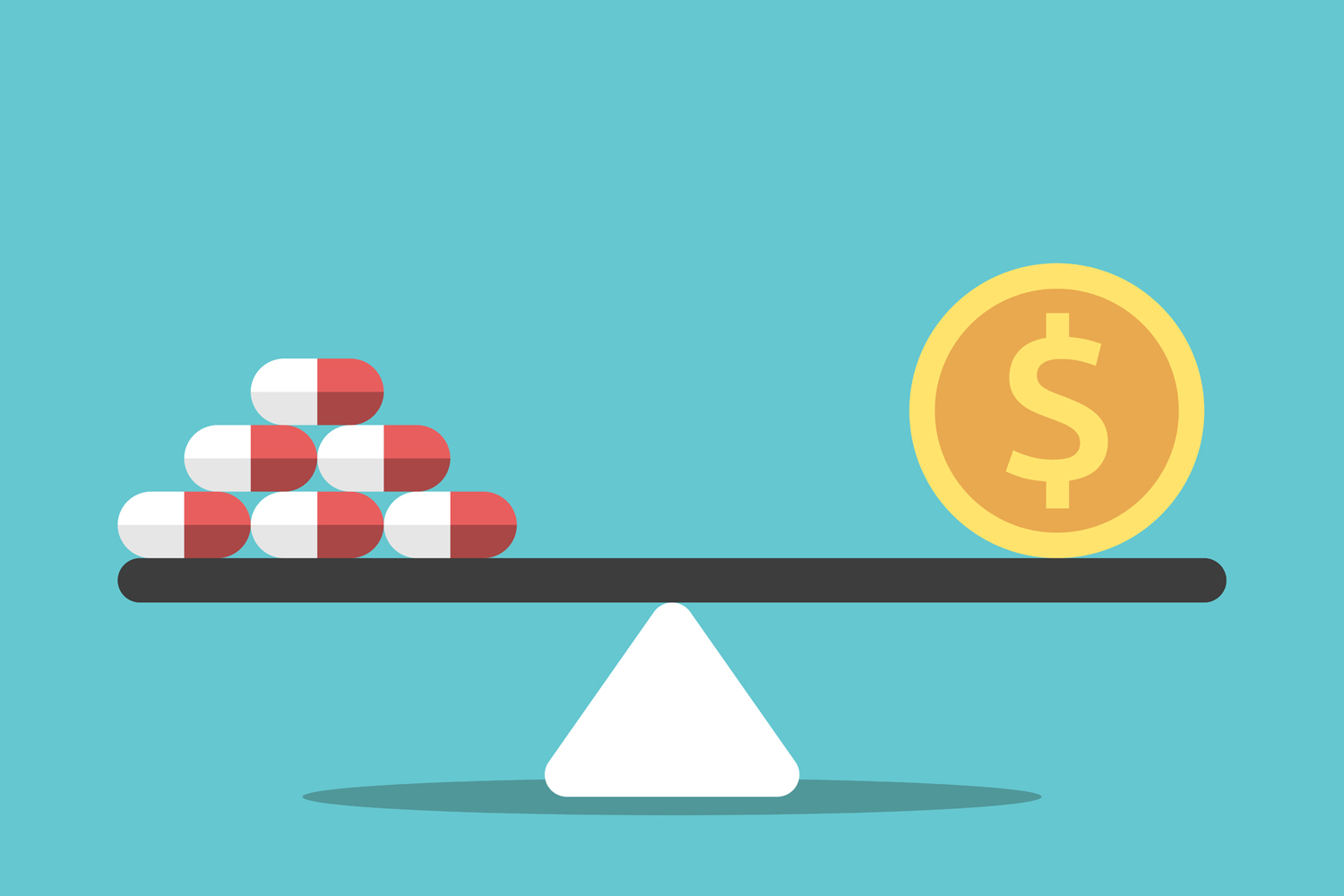ALONG WITH ITS PHYSICAL AND EMOTIONAL BURDEN, a cancer diagnosis takes a financial toll on patients and their families. Out-of-pocket medical expenses and time away from work can quickly add up. With millions of people facing a diagnosis, cancer can drain personal savings, reduce work productivity and limit the number of people in the job market on a worldwide scale.
In a study published April 2023 in JAMA Oncology, researchers predicted the effect cancer will have on the global economy from 2020 through 2050. The estimates, based on international financial data and cancer mortality and morbidity statistics, account for money spent on treatment, as well as cancer’s impact on the labor market.
The research places the cost of cancer across three decades at $25.2 trillion. China and the United States will face the highest fiscal losses at $6.1 trillion and $5.3 trillion, respectively. Despite having only 25% of deaths, high-income countries will assume 51% of the costs, in part because treatment is more expensive in nations with advanced health systems. Researchers also calculated the financial impact of individual cancer types and found lung cancer will have the highest price tag at $3.9 trillion.
The study authors stressed the importance of investing in cancer prevention efforts as a means to improve both public health and the global economy. Since tobacco use is the leading preventable cause of cancer, the authors specifically called for stronger social interventions like smoking bans and tobacco taxes. To reduce the total cost of cancer, the authors also recommended broader insurance coverage for cancer screenings.

Source: JAMA Oncology
Cancer Today magazine is free to cancer patients, survivors and caregivers who live in the U.S. Subscribe here to receive four issues per year.





